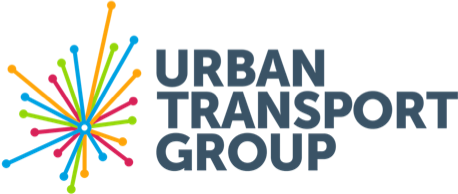Consultation response
Policy
Our latest reports, briefings and consultation responses are listed below. Use the search or filter functions to discover specific policy documents.
You can also see our full list of policy topics via the link below.
Report
Inside track - The state of transport 2025
Report
The pathway to a brighter transport future: Harnessing the opportunity of our local railways
Consultation response
Integrated National Transport Strategy: a call for ideas
Report
The pathway to a brighter transport future: Delivering growth through transport devolution
Consultation response
Managing the impact of street works
Consultation response
Buses connecting communities
Consultation response
On-street micromobility rental framework
Report
The pathway to a brighter transport future: The fiscal imperative
Consultation response
Proposed reforms to the National Planning Policy Framework and other changes to the planning system
Report
A Smoother Ride: Unlocking a green bus revolution
Report
Rail and urban transport review - An assessment and ambition for a new government
Report
A brighter transport future - Member and partnership opportunities
Consultation response
Adapting the UK’s transport system to the impacts of climate change
Consultation response
Public transport ticketing schemes block exemption
Consultation response
Smarter regulation: proposed changes to legislation for electrically assisted pedal cycles
Consultation response
Scrutiny of the draft Rail Reform Bill
Report
Inside track - The state of transport 2024
Consultation response
Children, young people and the built environment
Report
A Smoother Ride – Can capital investment deliver more efficient bus services?
Consultation response
Electric Vehicles
Report
A Smoother Ride - Reviewing the Bus Services Act 2017 to empower local areas
Consultation response
Strategic transport objectives
Briefing
National Initiatives on Skills and Diversity for the Transport Sector
This resource brings together national initiatives on skills and diversity with relevance to the transport sector. This is the only such resource for the transport sector. It can help organisations looking to diversify their workforce, help to raise the profile of careers in transport to the next generation and support inclusion and wellbeing in the current transport workforce.
Briefing
Ticket office closures: a UTG position paper
Consultation response
GBRTT commission on simpler, better industry processes
Briefing
Changing travel habits and what they mean for future transport trends
This briefing explores some of the background factors that are driving current transport trends, and what these might mean for the patronage recovery moving forwards.
Briefing
How the energy sector works: a guide for transport professionals
Briefing
Public transport’s funding crisis – and how to fix it
This short read briefing gives an overview of the current funding challenges faced by local public transport and what Government should do to address them.
Report
Urban Public Transport Funding - Options for Reform
This report, produced by consultants Steer for the Urban Transport Group, explores the options for reforming local public transport funding.
The report also considers the implications of ending covid-related bus funding in April 2023, warning that bus services could be reduced and fares increased as a result.

